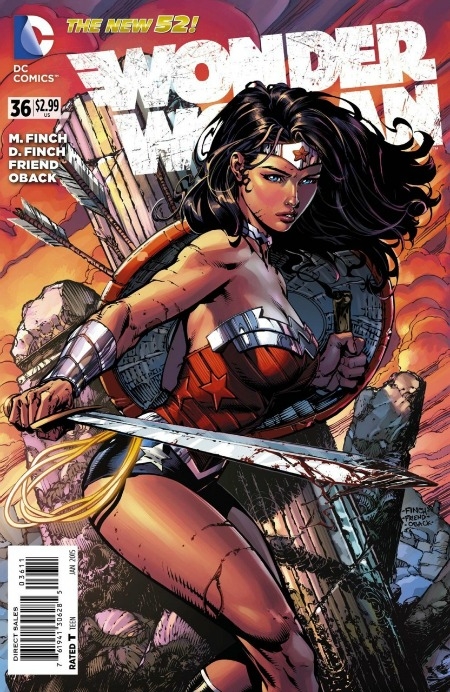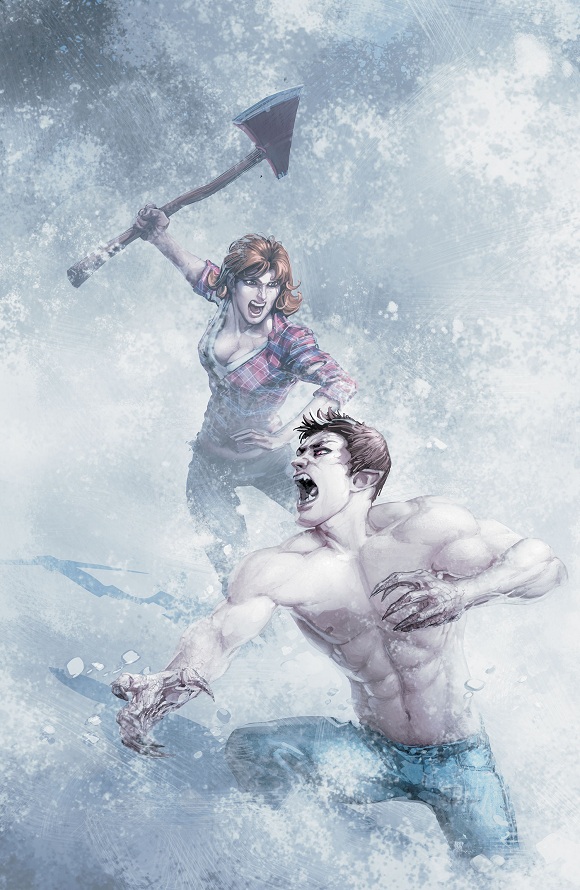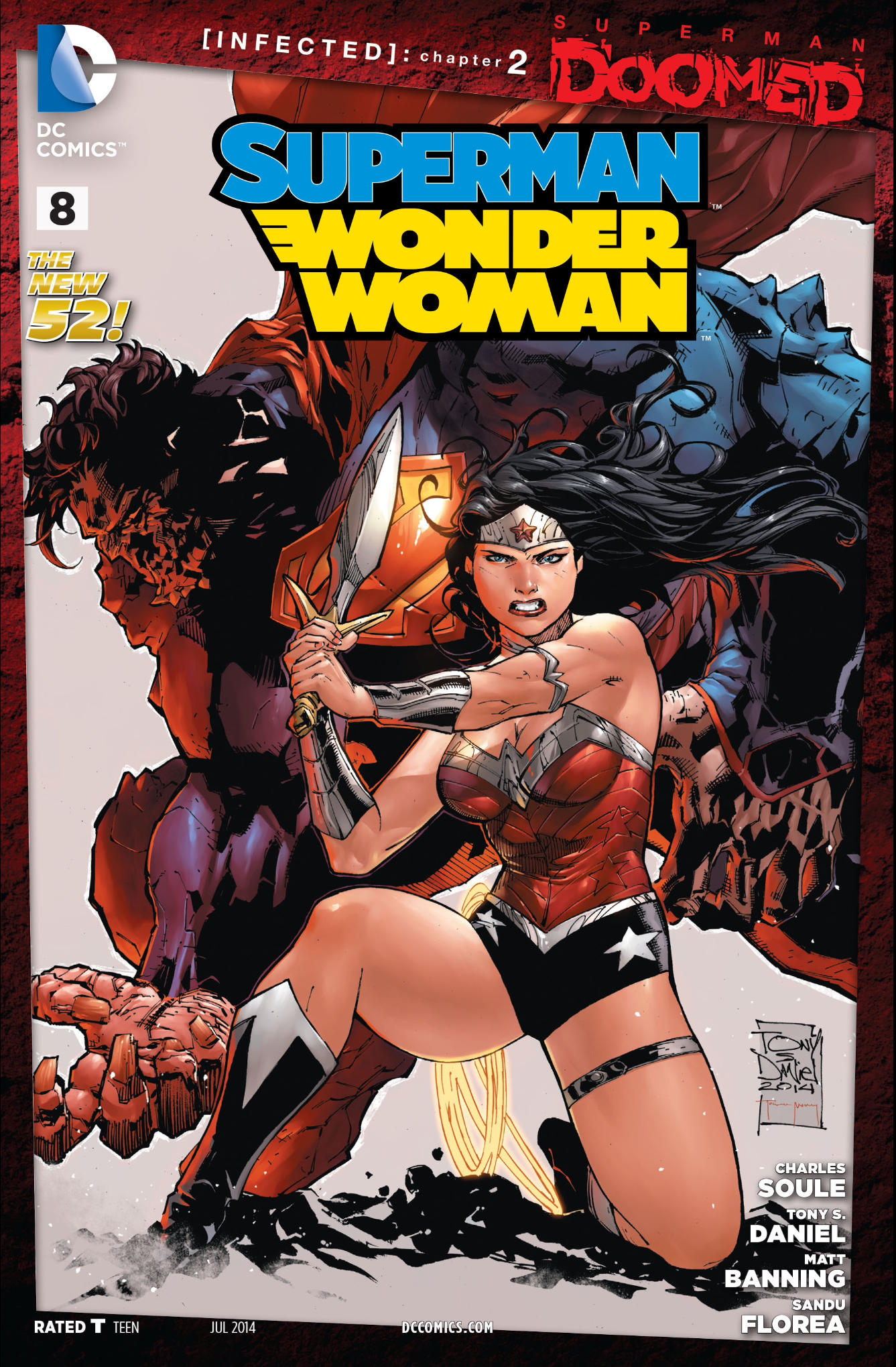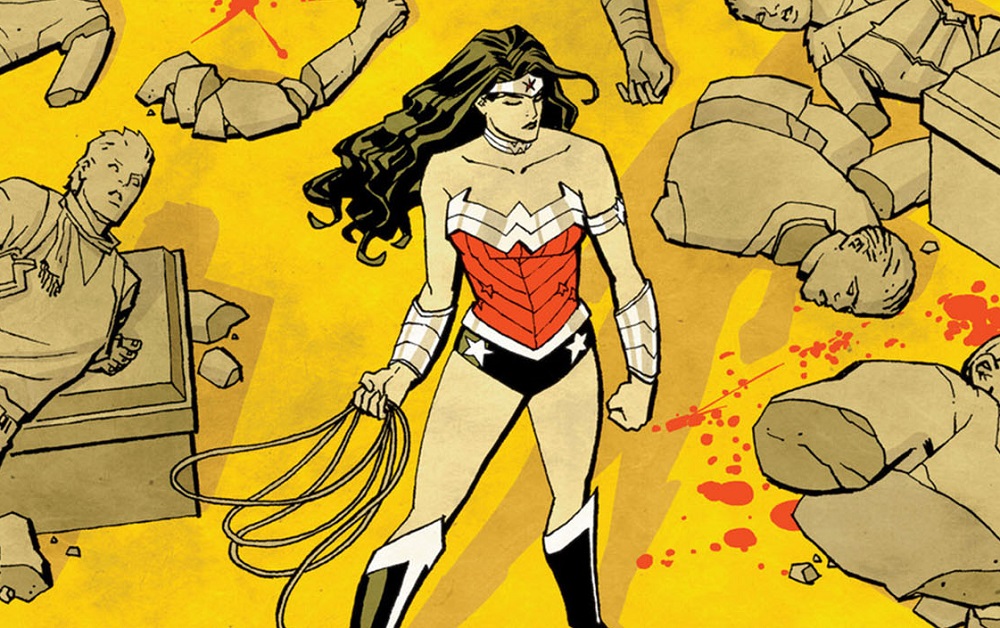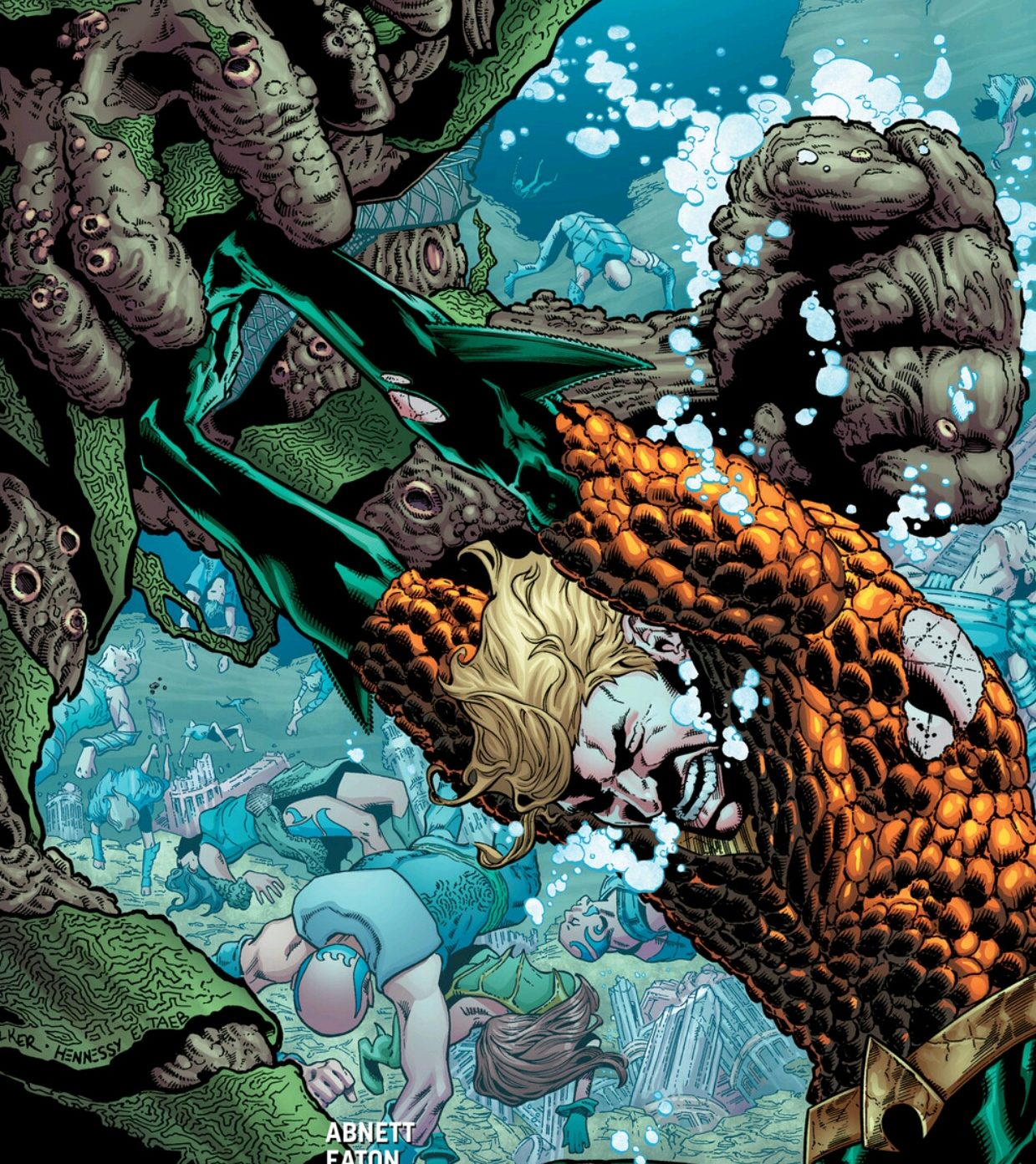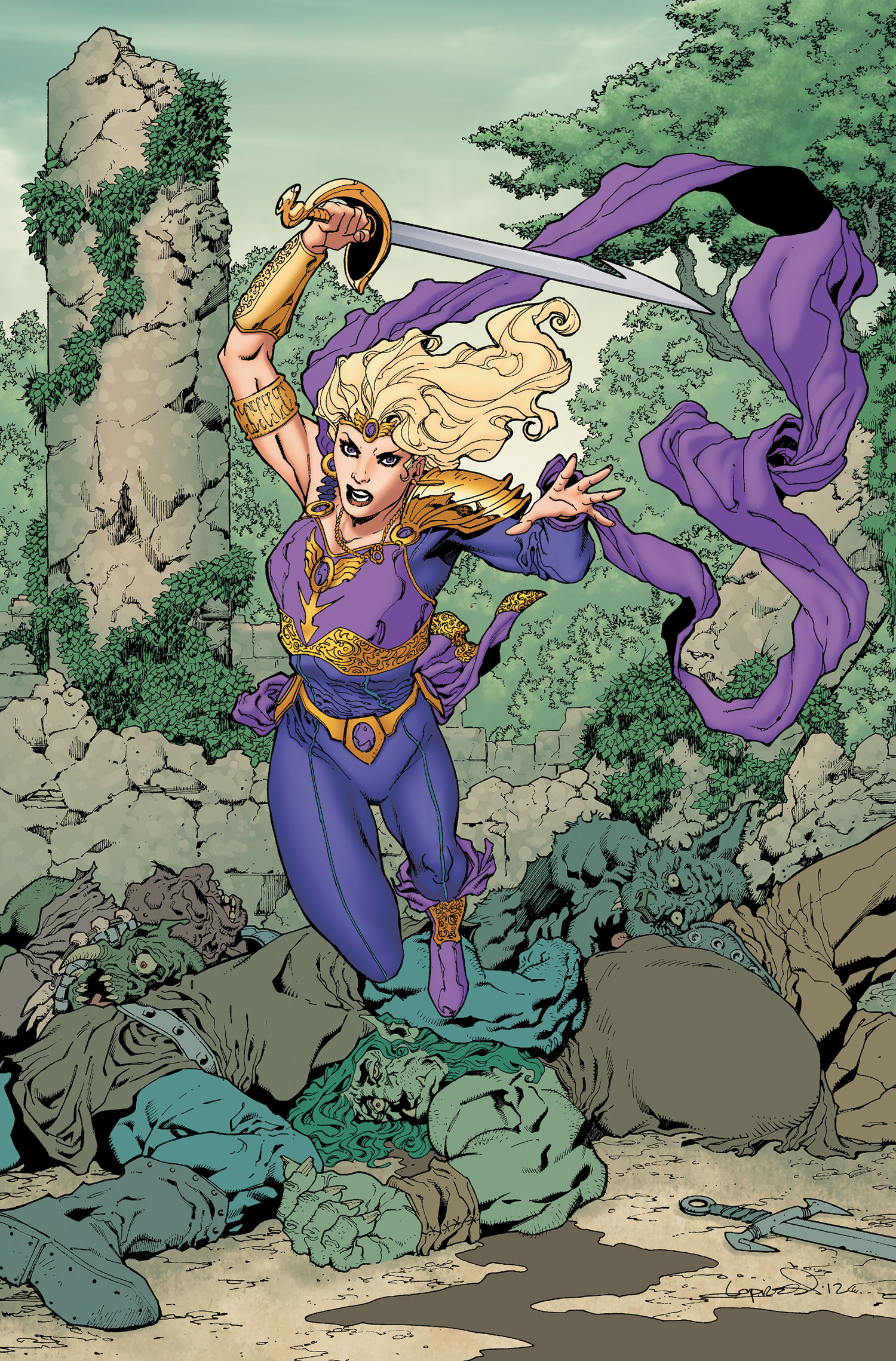On this week’s podcast, we discuss the very controversial BEFORE WATCHMEN that’ll be arriving in stores in the near future. On said podcast, I bring up a certain letter that J. Michael Straczynski wrote up and posted on his Facebook page… a fairly lengthy letter that I didn’t want to get too into on air.
Anyways, JMS does a pretty good job of giving a seemingly unbiased opinion on the whole BEFORE WATCHMEN subject and I really wanted people to read it and try to form an opinion on the upcoming series based on what JMS presents in this letter.
—————————————–
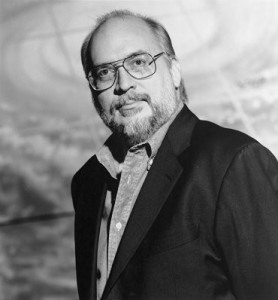 Rather than answer the questions about Watchmen piecemeal in separate topics, I figured I’d address the key ones here, all in one place.
Rather than answer the questions about Watchmen piecemeal in separate topics, I figured I’d address the key ones here, all in one place.
Let me start out by tackling head-on the most frequent question: “how would you feel if Babylon 5 was being done without your permission?” It’s a fair question, and it needs to be fairly answered…but it has to be an honest comparison, apples to apples, not apples to pomegranates.
First, we have to take the word “permission” off the table. Warner Bros. owns Babylon 5 lock, stock and phased-plasma guns, just as DC owns the Watchmen characters. DC wasn’t making creator-owned deals back in the 80s. Moreover, they were variations on characters that had been previously created for the Charleton Comics universe. Main point is: neither of us owns these characters in any significant legal way. Consequently, neither company needs our permission to do anything.
But I get that we’re talking about the emotional aspect of all this, not the legal stuff, which is pretty cut and dry. So again: apples to apples.
How would I feel if Babylon 5 were being made and I were shut out of anything to do with it, despite my desire to be involved? I’d feel pretty crummy about it. But as it happens, that has absolutely nothing to do with this situation in any way, manner, shape or form.
If at any point in the last 25 years, Alan had said, “you know, there’s a Watchmen story I’d like to tell,” there’s no question that DC would have given him both the freedom to tell that story and a check big enough to dim the lights at their offices for a week. And there were frequent overtures for him to do just that. In 2005, DC actually offered to give him ownership of the characters if he’d come back to do more stories with them.
They wanted his involvement, solicited his involvement, would have been thrilled at his involvement. He declined at every point. Fair enough. It’s his choice, and it’s his right to make it.
So now – apples to apples – let’s make the B5 comparison. Let’s say Warner Bros. came to me and said, “we want to do more Babylon 5, and we want you to run the whole thing. We’ll pay you anything you want, give you a proper budget, and you will have complete creative freedom.” (Actually, they made that offer last year, and I said yes enthusiastically, because I love these characters and that universe. At the eleventh hour the distribution system they had been trying to put together fell apart, and so did this, but let’s stick to the subject, shall we?)
So let’s say that Warners makes that offer, and I said, “No, I don’t want it, take your accursed money, your big budget and your complete creative freedom and begone, get thee behind me Satan!” Let’s say they came back and said “Okay, then how about we pay you vast sums of money just to consult? How about that?”
“No,” let’s say I cried, “no, no, a thousand times no.”
“How about just to meet with us? Just for an hour?”
“No, absolutely not, nuh-uh, no way, not a chance.”
“What if we sweeten the deal? What if we offer to give you full ownership of Babylon 5, legally and contractually, so you own it? How about that?”
“Fie, I tell you, fie!”
Well, where does that leave us?
If Warners offered me creative freedom, money and a budget to do the show the way I wanted, up to and including my completely owning the show, and I said no to that deal, and if after Warners waited TWENTY FIVE YEARS for me to change my mind they finally decided to go ahead and make B5 without me…then I would have absolutely zero right to complain about it. Because it was my choice to remove myself from the process, it wasn’t something foisted upon me by anybody else.
And frankly, and I’m only talking about me here, if I made that choice, I would be an idiot. Because I love those characters and that universe, and would greatly enjoy the chance to play with them again. Every TV writer in town would show up at my door just to personally kick the crap out of me, and they’d be right to do it.
On to the next topic.
“These were one-off characters, they were never intended to be used again.” A really good point whose only problem is that it’s not actually true. That was certainly never DC’s perception of the characters, and Alan himself floated an idea about doing a Minutemen prequel back in 1985.
Alan didn’t walk away from Watchmen for artistic reasons, he walked away over contract language regarding ownership issues. It was a contract dispute. In time that morphed into something else, but that was not what happened at the time.
“These characters are sacred, nobody else should write them.”
If we’re going to talk about the sanctity of characters, let me point to an observation I made in one of the interviews:
“Alan has spent most of the last decade writing some very, very good stories about characters created by other writers, including Alice (from Wonderland), Dorothy (from Oz), Wendy (from Peter Pan), as well as Captain Nemo, the Invisible Man, Jekyll and Hyde and Professor Moriarty. I think one loses a little of the moral high ground to say, “I can write characters created by Jules Verne, HG Wells, Robert Louis Stevenson, Arthur Conan Doyle and Frank Baum, but it’s wrong for anyone else to write my characters.”
Some folks have replied to this with “well, Alan says this is different because he’s using those characters in different situations.” (I’m not vouching that Alan said that, only that this is the most common reply. If he never said anything to that effect I’m happy to be corrected.)
I’m really good with the English language, but I’ve turned that sentence over several times and I can’t parse it in any logical way. What the heck does it even mean? The moment you have Mr. Hyde do anything not in Robert Louis Stevenson’s book, it’s a “different situation.” I think that the argument being made here is that by putting Mr. Hyde in a modern context, then that makes it Alan’s and that makes it legally and morally okay.
If that’s true, then I invite Alan to try that with James Bond, or Jason Bourne, or any other character where the writer or the estate is still around to fight for the rights of their characters. Legally, yes, you can do what you wish with public domain characters. But one ends up on a slippery moral slope to say that all of these other writers’ characters are fair game but Alan’s characters are sacred on a moral or emotional basis.
I would suggest that there are just as many people around the world who hold Wendy from Peter Pan sacred, or who might think it untoward that Alan had Mr. Hyde literally sodomize the Invisible Man TO DEATH after the latter serially raped a bunch of girls at a private school. How would Robert Louis Stevenson or H.G. Wells have viewed such a story?
Despite this, somehow, by Alan’s lights, that’s not just okay, it is right and proper. I’m not saying he shouldn’t have done it. Alan’s a genius, and if it were in my power I’d set him up with a big distribution system, ten million dollars, and publish anything he wrote, up to and including the phone book.
I’m just suggesting that one needs to be consistent in one’s moral stance if one wishes that moral stance to be taken seriously.
“This will dilute the legacy of the original Watchmen.”
Can’t happen. The book is the book is the book. It will always be up on the shelf. You can read it alone, or after the prequels, or before…it doesn’t change a word of it. The original book has twenty five years of legacy standing behind it. It’s not that fragile. It’s a work of art, and art endures.
“So how come you left Thor because they were messing with the story?”
Apples, meet oranges. Thor was a work in process, versus a finished work in the case of Watchmen. No one’s suggesting a mid-course correction in the original book. I would have been happy to remain on Thor for decades, but when I saw the ominous approach of an Event that would once again erase or damage the story that I had worked so hard to create, I opted out. By contrast, nobody is infringing on a story Alan wants to write. Finally, again, opting out of Thor was my choice, just as it’s Alan’s choice not to be involved in any further Watchmen projects. I have no more right to complain about what came afterward than…well, anyone else in that situation.
“You didn’t like what Mongoose Publishing did with Babylon 5.”
True. Leaving aside that they were trying to include novels into a licensing contract that was intended only for game books and reference…leaving aside that instead of going to quality writers they picked up fan fiction on the cheap from amateur writers…the books were dreadful and not in keeping with the standard that I applied to anything done in the B5 universe. I’d bounced a couple of properly authorized and sanctioned novels previously because I didn’t feel they were up to snuff. The quality was the issue, not my involvement, because under contract I was involved and had approval. Had the books been better, they would’ve come out. They weren’t, and they didn’t. Apples and oranges.
I think those are all the major points that have been repeatedly brought up here and online elsewhere. To which I would add only the following codicil.
When I met with the others in New York to discuss these books, I was in awe of the assembled talent. These were, and are, some of the brightest lights in the comic business. (And me, holding up the rear.) Listening to Brian A, I frankly thought I should be sitting at the children’s table, not here. And beside me was Len Wein, who was involved with the original Watchmen books. Amazing.
I wish you could’ve been there. I wish you could’ve seen the passion, the care, the creativity in their eyes and in their voices. There was no talk of money, or of deals, it was all about digging into characters for whom we all shared a profound reverence and appreciation. No detail was too small to delve into. What really happened to this character, who died or disappeared? Why did this other character dissolve into madness and alcohol? Who the hell was the Twilight Lady? There was an excitement and a dedication to preserve the quality of the characters that I wish you could have been present to witness firsthand.
It. Was. Awesome.
I have always put a great emphasis on doing right by the money fans have to spend on product. This is because I come from ridiculously poor circumstances, and equally ridiculous fannish circumstances. I saved all summer to buy a membership in the Supermen of America Club. Another summer got me a wonderful envelope from FOOM. I was the only kid in my neighborhood who not only ordered a pair of X-Ray Specs, but expected them to actually work…and was devastated when they didn’t.
So I’ve always viewed things from a perspective of, “Is this going to be worth somebody’s hard earned cash?” I won’t speak of my stuff, because the specter of enlightened self-interest raises its head…but when I think of what Brian and Darwyn and the others are doing with their books, the stories they’ve chosen to tell, and the reaction I think these stories will meet, the quality of the art and the storytelling…for me, as a fan, the answer is an enthusiastic “hell, yes.”
The books will speak for themselves.
Everything else is just foreplay.


